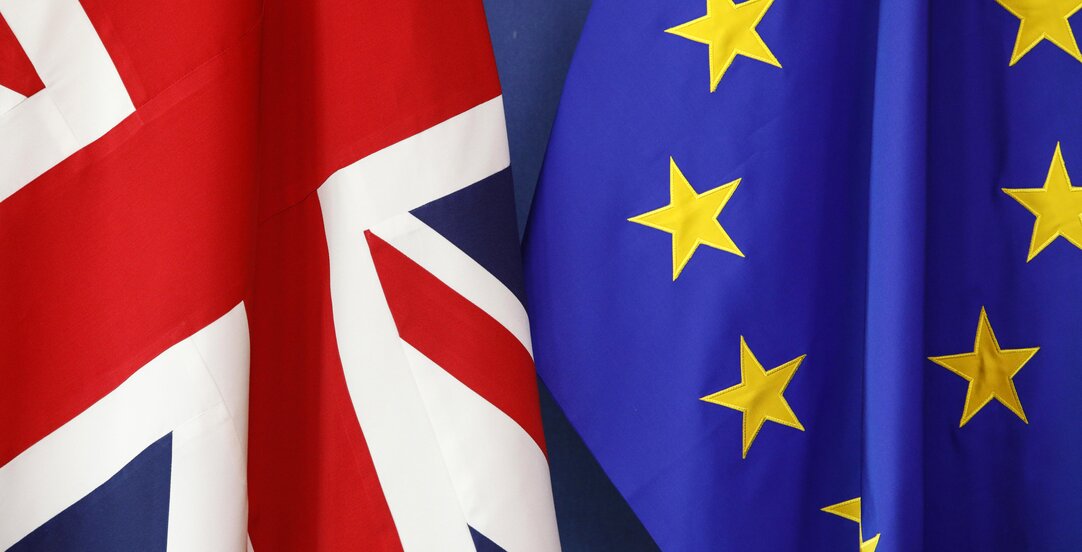Recent developments: Russia-related sanctions

Over the past few weeks, there have been a number of developments in the Norwegian, EU, UK and US sanctions regimes relating to Russia. In this article, we summarise the following recent developments:
Lesetid 7 minutter
- New agency under the Norwegian Ministry of Foreign Affairs to deal with export control and sanctions
- European Parliament drafts new law to crack down on violations of EU sanctions
- The UK increases trade sanctions on the provision of professional services in connection with Russia, including legal advisory services
- Further US designations targeting Russian access to battlefield supplies
- Further UK and EU Russia designations target individuals involved in human rights violations
- Non-EU member states align with the EU's 11th package of sanctions against Russia
1. New agency under the Norwegian Ministry of Foreign Affairs to deal with export control and sanctions
On 10 July 2023, the Norwegian Ministry of Foreign Affairs (MFA) announced that it has begun the process of establishing a new subsidiary agency to deal with the areas of export control and sanctions, which is currently handled by various sections of the MFA.
The imposition of comprehensive sanctions against Russia and Belarus has led to a significant rise in the number of applications and requests to the MFA. According to the Norwegian Minister of Foreign Affairs, Anniken Huitfeldt, "the purpose of establishing a new agency is to be able to provide better guidance and process applications more quickly".
The MFA is aiming for the new agency to be operational in 2024 (albeit has not specified when in 2024 it expects this to happen). For more information, the press release can be found on the MFA's website.
2. European Parliament drafts new law to crack down on violations of EU sanctions
On 6 July 2023, the Members of the European Parliament in the Civil Liberties Committee adopted a draft negotiating mandate on violating and circumventing EU sanctions. The law would introduce a common definition of violations as well as minimum penalties.
According to the proposed law, which was originally published by the European Commission in December 2022, violations would include failing to freeze funds and not respecting travel bans, doing business with state-owned entities of countries subject to sanctions, and circumvention of sanctions.
Further, according to the proposed law, violating and circumventing sanctions should be punishable criminal offences carrying prison sentences of a maximum of five years and fines of up to ten million euro. For companies, the maximum fine would be 15% of overall annual turnover (an increase from the Commission's original proposal of 5%). Aggravating circumstances, e.g. war crimes, could lead to higher penalties.
3. The UK increases trade sanctions on the provision of professional services in connection with Russia, including legal advisory services
Business services:
With effect from 30 June 2023, the UK added new exceptions to the existing prohibitions on providing professional and business services to a person connected with Russia, cf. Regulation 54C. The new exceptions mean that the prohibitions laid out in Regulation 54C are not contravened where:
- Auditing services are provided to a UK undertaking, with part Russian ownership, in connection with that UK undertaking's compliance with its statutory or regulatory obligations; and
- A UK person provides expert evidence in the context of, or in anticipation of, contentious proceedings (i.e. court, arbitral or mediation proceedings).
Legal services:
With effect from 30 June 2023, the UK implemented new trade sanctions on the provision of transactional legal advisory services to any person in circumstances where the underlying transaction activities would – if actually or hypothetically involving a UK person – be prohibited by the UK Russia Regulations whether in respect of financial or trade sanctions.
The prohibitions apply to UK persons, as well as to non-UK persons who are conducting relevant advisory activities within the UK. This means that it can apply both to legally qualified persons such as solicitors, barristers, and in-house counsel, as well as to non-legally qualified persons such as e.g., compliance officers or consultants ("Advisers").
It is important to note that the scope of this restriction is very wide, and differs from other trade sanctions, which are usually limited to services provided to "persons connected with Russia" and designated persons. There does not need to be a UK nexus (other than the involvement of an Adviser) for the restrictions to bite. The UK government has indicated that this is intentional, because the underlying policy driver is to prevent the 'export' of UK legal services which indirectly enable transactions which support the Russian regime.
As such, if the underlying transaction activities would infringe any of the substantive financial or trade sanctions against Russia if a UK person were involved, then the Advisor is also restricted, unless protected by an exception or licence. The relevant exceptions can be found in Russia Regulation 60DB - an Adviser can act if:
- They are providing representation services, i.e., acting in a dispute;
- They are providing advice on UK compliance, i.e., advising on whether a party can lawfully proceed under UK law (see further below);
- Pursuant to the 'wind down' provision, which allows Advisors to continue acting on existing matters (or on ancillary matters) up until 29 September 2023, provided that a notification is made to the Department for Business and Trade using the online SPIRE system.
The UK Law Society (and others in the UK legal industry) have raised particular concerns regarding the provision of international compliance advice, which is not clearly and fully captured by the relevant exception. The UK government has since confirmed that this was an 'unintended' restriction, and is in the process of issuing a General Licence to ensure that Advisors may continue to provide such 'wraparound' sanctions advice. It is not yet known whether that will have retrospective effect, or whether wider compliance advice on matters such as anti-corruption and anti-money laundering regimes will be included. The General Licence is expected to be issued very soon.
The restrictions present a challenge to any Adviser who is involved in international transactions and even compliance work. This is because Advisers may have to conduct quite complex sanctions assessments regarding the substance of the underlying activities, and they may be restricted even where the underlying activities would be otherwise substantively lawful in the countries where they are being performed. It is important to be aware that the Adviser can be restricted even where no UK nexus actually exists. For the time being therefore, Advisors should exercise caution with respect to both new and existing work where there is a Russian nexus. If in doubt, Advisers should consult with specialist sanctions lawyers before providing further services in transactional matters which have a Russian nexus.
The new restrictions on legal advisory services are included in Regulation 54D of the Russia (Sanctions) (EU Exit) Regulations 2019.
Further information on the prohibitions in Regulation 54C and 54D can be found on OFSI's website.
4. Further US designations targeting Russian access to battlefield supplies
On 20 July 2023, OFAC and the US Department of State introduced a new wave of over 120 designations, seeking to, among other things, inhibit Russia's access to products that support its military and war efforts, reduce Russia's revenue from the metals and mining sector and starve Russia of G7-produced technology and access to the international finance system.
Deputy Secretary of the Treasury Wally Adeyemo stated that "Today's actions represent another step in our efforts to constrain Russia's military capabilities, its access to battlefield supplies, and its economic bottom line".
The new designation included 18 individuals, 96 entities and 14 vessels. The list of new designations is available on OFAC's website.
5. Further UK and EU Russia designations target individuals involved in human rights violations
On 17 July 2023, the UK announced 14 new designations in response to "Russia's response to destroy Ukrainian national identity". A majority of the new designations target individuals who have played a significant role in the illegal deportation of Ukrainian children to Russia. The press release and the notice can be found on OFSI's website.
Subsequently, on 20 July 2023, the EU imposed restrictive measures against a number of individuals and entities under the EU Global Human Rights Sanctions Regime, because of their responsibility for serious human rights violations and abuses in several countries, including Russia and Ukraine. Notably, the measures target those who have misused facial recognition technology for arbitrary arrests in Russia as well as the politically motivated rulings against the opposition politicians, democracy activists and outspoken Kremlin critics Alexei Navalny and Vladimir Kara-Murza.
6. Non-EU member states align with the EU's 11th package of sanctions against Russia
The EU candidate countries North Macedonia, Montenegro, Albania, Ukraine, and Bosnia and Herzegovina, as well as the EFTA countries Iceland, Liechtenstein and Norway, have aligned themselves with the EU's 11th package of sanctions against Russia, according to a statement by the European Council High Representative on 23 June 2023.
The 11th package of sanctions has not yet been implemented into the Norwegian Ukraine Regulation, but according to the MFA, the work is now ongoing. The new designation criteria in the 11th package are already implemented into the Ukraine Regulation, which includes natural or legal persons facilitating infringements of the prohibition against circumvention, legal persons operating in the Russian IT-sector and leading businesspersons operating in Russia as well as their immediate family members.
_
WR Sanctions Alerts provide you with updates on material developments in the country-specific sanctions programmes implemented by the US, the UN, the UK, the EU and Norway. We will not provide updates on mere prolongations, without material changes, of existing sanctions programmes, nor on any listings or de-listings of individuals/entities placed on implemented sanctions lists. Please note that the WR Sanctions Alerts are provided as general information and do not constitute legal advice.



